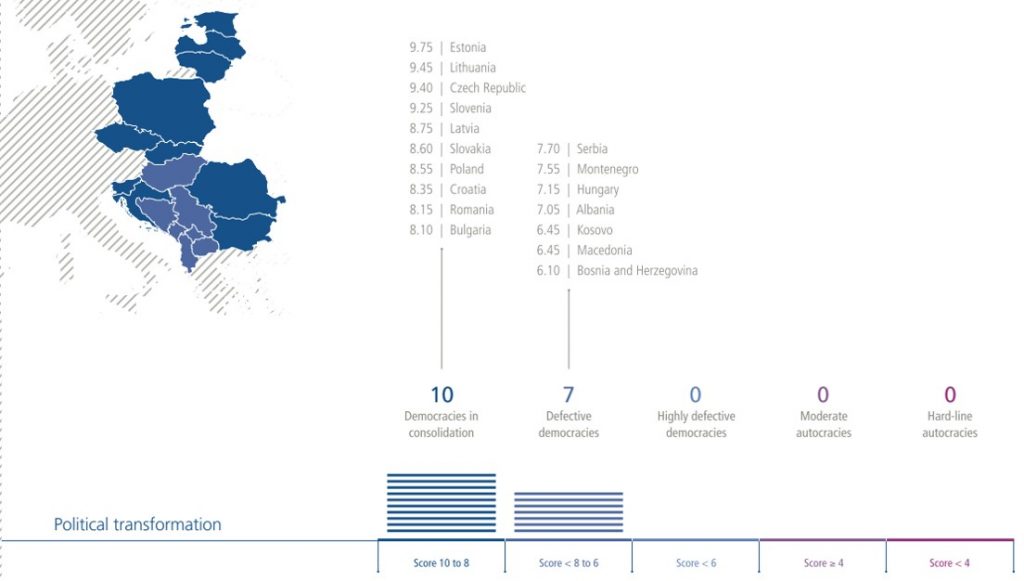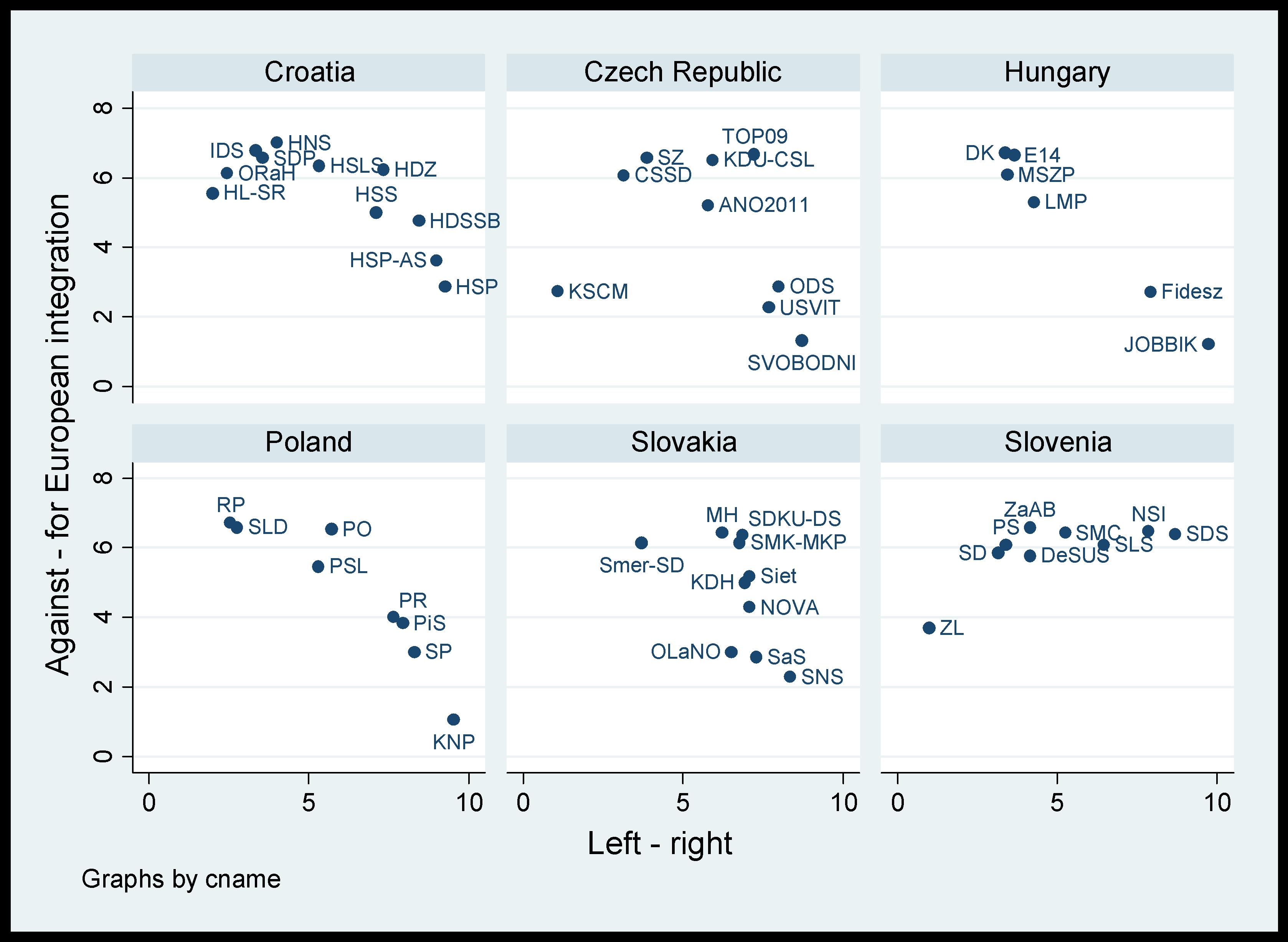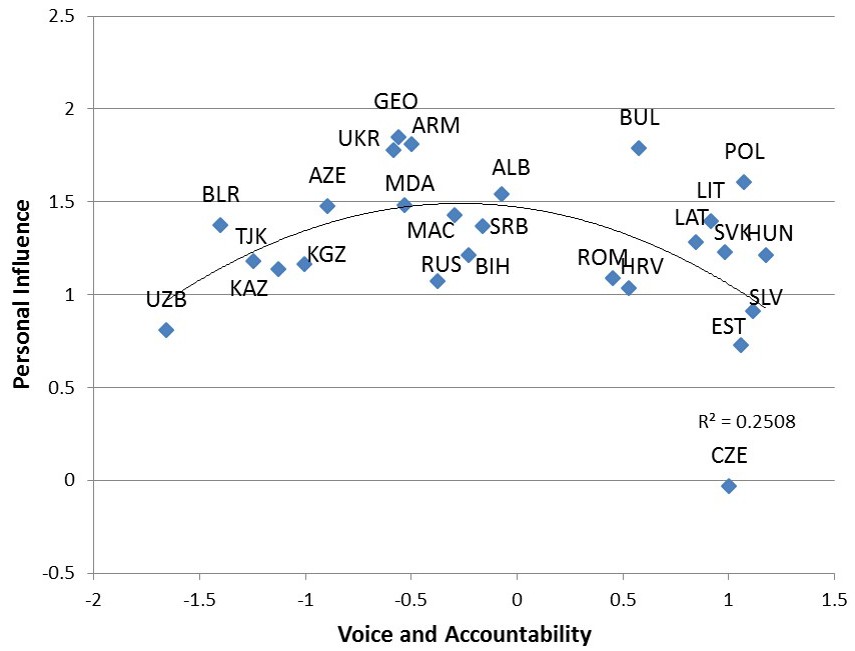Relating the Sustainable Governance Indicators
to the Quality of Democracy
Paper for the Workshop “Measuring Democracy”. IPSA Research Committee on the Quality of Democracy, DVPW-Arbeitskreis Demokratieforschung, Frankfurt/Main, 29 September – 1 October 2013
The Sustainable Governance Indicators (SGI) are a set of 147 detailed items and two aggregated indices that measure the quality of democracy (QoD), policy performance and executive governance in OECD member states. Two editions have been published since 2009 by the Bertelsmann Foundation, an NGO based in Germany. The SGI consist of qualitative expert assessments, country reports and data retrieved from official statistics. As the name suggests, the SGI have been designed to measure the quality of governance, a concept that overlaps with concepts of democracy or QoD, but has its distinct origins, ideational references and discourse communities.
One motive for their creation has been to complement the Foundation’s so-called Transformation Index that is limited to assessing democracy and market economy in the developing world, post-socialist countries and emerging markets. Since the label “Transformation” and the underlying concepts refer to reforms aimed at establishing democracy and market economy, a simple transfer of these concepts to countries considered as “established” democracies and market economies would have raised many problems. It was therefore decided to use the label “Governance” in the SGI project. Apart from the appeal of an internationally more familiar term (and renowned predecessor projects such as the Worldwide Governance Indicators), the label was also chosen to convey a more specific meaning since it refers to the interaction between governments and their political and societal environment. This focus on “executive governance” has been seen as an important added value of the entire project since the governing activities in and by (core) executives constituted a white spot in an increasingly crowded field of cross-nationally comparative indices and datasets.
The present paper does not further explore the SGI’s conceptual background in debates about the quality of governance and government. Rather, it explains the design of the SGI by situating it in the debate on QoD. This debate has been concerned with theoretically grounded concepts able to adequately differentiate among democracies. It has been driven by the global diffusion of democracy that has made differences between individual democracies more visible and has revealed shortcoming of existing measures of democracy which often do not sufficiently distinguish among so-called established democracies.
The paper identifies two conceptual strategies scholars have chosen to evaluate QoD: enhancing the concept of democracy or defining a separate concept of democratic quality. More demanding, “thicker” conceptualizations of democracy must demonstrate that including or excluding additional attributes neither stretches the concept nor introduces voluntarism. Conceptualizations of democratic quality are expected to anchor the underlying idea of quality in the theory of democracy. In the first three sections, these conceptualizations are discussed and integrated into a composite concept that combines the notion of a constitutional democracy with measures of governmental accountability, responsiveness and performance. The paper claims that the SGI, by reflecting this composite concept, provide a valid measure for QoD. In the following sections, the concept is further disaggregated into dimensions, categories and items that enable a measurement based both on indicators from official statistics and expert ratings. The SGI measurement and aggregation procedures are explained and the validity of the measurement is examined.



